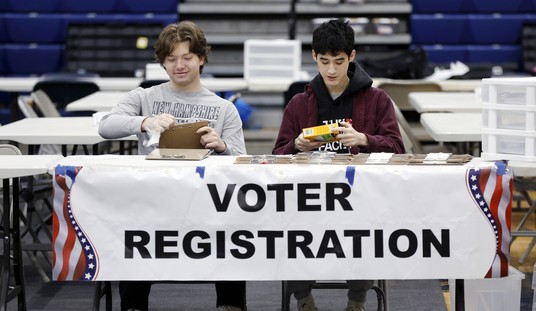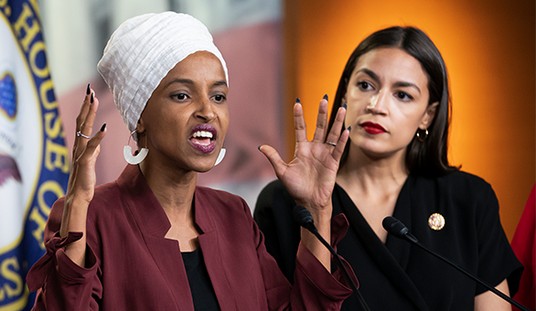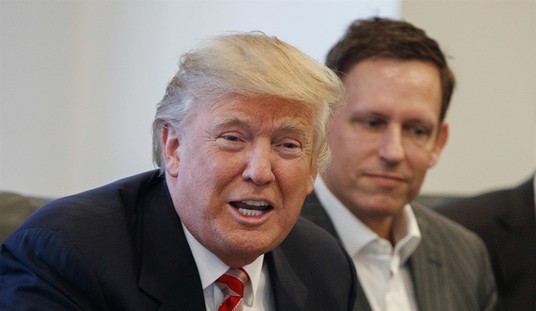Every once in a while a politician says something that you think can’t possibly be correct… until you find that it is. This happened earlier in the month (better late than never) when [mc_name name=’Sen. Marco Rubio (R-FL)’ chamber=’senate’ mcid=’R000595′ ] was asked about sugar subsidies:
“I’m ready to get rid of the loan program for sugar, as long as the countries that export sugar into the U.S. get rid of theirs as well, and here’s why: Otherwise, Brazil will wipe out our agriculture and it’s not just sugar.”
“I’m prepared to say, absolutely, we should change the law so that as soon as countries get rid of theirs, we get rid of ours, and then there will be a free market for being able to sell food. Otherwise these other countries will capture the market share, our agricultural capacity will be developed into real estate, you know, housing and so forth, and then we lose the capacity to produce our own food, at which point we’re at the mercy of a foreign country for food security.”
I’m not an agribusiness specialist but I’m pretty sure this is not how things work in real life but it is how they work in the crony-capitalist halls of Washington. Rubio’s argument applies equally well to the Export-Import Bank.
The US sugar program is a scam. Period. Full stop. It is designed to protect the economic interests of a small oligarchy of sugar producers while gouging the US consumer.
The U.S. sugar program is a relic of the Great Depression. According to a 1958 description of the program’s origins: “The government intervened on behalf of domestic sugar growers with the Jones–Costigan Act in 1934. This act enabled the government of the United States to do to American consumers what German U-Boats had threatened during the war: cut off or cut down on imports of sugar.”[3] In 1929, the legendary Will Rogers proclaimed of sugar-tariff proponent [mc_name name=’Sen. Jack Reed (D-RI)’ chamber=’senate’ mcid=’R000122′ ] Smoot: “Lot’s wife (or somebody in the Bible) turned around to look back and turned into salt. If Reed ever glances back we are going to have a human sugar bowl on our hands.”[4]
…
Americans pay a big surcharge for sugar because the federal government guarantees a minimum price for sugar. To maintain this minimum price, the government restricts low-priced imports by establishing a quota that limits the amount of sugar Americans can import at relatively low tariff rates. Any imports above this quota are subject to prohibitively high tariffs. Based on 2013 world sugar prices, the average above-quota tariff rate was 88 percent for raw sugar and 73 percent for refined sugar.
Since the turn of the millennium, Americans have paid an average of 79 percent more for raw sugar and 87 percent more for refined sugar compared to the average world price. Although the gap between U.S. and world sugar prices has narrowed some in recent years, U.S. consumers still pay a significant premium. In April, the price of raw sugar in the United States was 43 percent higher than the average world price. The price of refined sugar was 39 percent higher in the United States than in other countries.[7] For FY 2013, U.S. sugar beet and sugarcane producers supplied 21.8 billion pounds of refined sugar to the U.S. market at an average wholesale price of 28.84 cents per pound, or $1.3 billion more than if U.S. sugar buyers had been allowed to pay the average global price of 22.84 cents per pound.[8]
But the sugar interest is politically powerful in Florida and a small number of other states. This chart by heritage explains why sugar is so powerful:
As a rival sugar combine observes:
The industry bankrolls the campaigns of lawmakers on both sides of the aisle. One group, American Crystal Sugar, donated $2.5 million to the 2014 campaigns of 248 lawmakers, along with national party committees and PACs.
Dozens of Republican and Democratic senators have accepted funds from the sugar industry in the past three electoral cycles. The top recipients in those cycles were [mc_name name=’Sen. Debbie Stabenow (D-MI)’ chamber=’senate’ mcid=’S000770′ ] (D-MI) with $82,230, [mc_name name=’Sen. Thad Cochran (R-MS)’ chamber=’senate’ mcid=’C000567′ ] (R-MS) with $81,500, Blanche Lincoln (D-AR) with $76,300, [mc_name name=’Sen. Bill Nelson (D-FL)’ chamber=’senate’ mcid=’N000032′ ] (D-FL) with $70,250, and Mary Landrieu (D-LA) with $69,700.
For all his proclaimed independence, Sanders cannot stop himself from gorging on the sweet deal the sugar industry offers. In the past two election cycles, ACS donated $20,000 to his campaigns. This ranks ACS among Sanders’s top 20 donors, ahead of groups such as Planned Parenthood, the Teamsters, and the American Federation of Government Employees.
Big sugar’s contributions and lobbying have paid off. Sanders has consistently voted for the annual farm bill, which reauthorizes agricultural subsidy programs. The most recent farm bill left the sugar program unchanged. Along with 52 other senators, Sanders also voted against a 2012 amendment sponsored by Senator Pat Toomey (R-PA) to the Agricultural, Reform, Food, and Jobs Act that would have reformed the sugar subsidy program.
…
Rubio’s support of sugar subsidies likely flows from the $25,200 he received in 2014 from his long-time backer Fanjul Corporation, which is a sugar producer based in his home state of Florida. Florida Crystals, a subsidiary of Fanjul Corporation, has given Rubio $105,500 over his career in politics, the fourth-highest total among his donors.
If Senator Rubio wants to impose a moral dimension, saving American agriculture from being converted wholesale into trailer parks, to rank protectionism and cronyism then he needs to think about the moral counter argument provided by Windsor Mann writing in National Review:
The national-security rationale proved compelling during the Cold War, particularly after Castro took power in Cuba and seized control of its sugar production. At the time, American sugar interests argued that expanding domestic quotas would prevent “more Castro-like revolutions in Latin America.” In response to concerns about the supposed unreliability of sugar imports during wartime, an official at the U.S. Department of Agriculture offered the following rebuttal: “In any limited war there would be no serious sea transport problems and if we have an unlimited war with thermonuclear bombs and warheads, a shortage of sugar will be the least of our worries.” Indeed.
The Cold War is over, but the excuses for sugar subsidies persist. If protecting Americans’ lives were the goal, Rubio would be calling for a ban on sugar, not a subsidy. After all, sugar kills more Americans than terrorists do. According to a recent study published in the journal Circulation, sugar-sweetened beverages account for one in every 100 obesity-related deaths. Each year an estimated 25,000 Americans die as a result of consuming them.
Obesity causes deaths. Sugar causes obesity. The government subsidizes sugar. You subsidize the government. You subsidize death. The terrorists win.
This syllogism makes at least as much sense as what Rubio said.
We don’t know exactly where Rubio stands on ethanal, he missed the Iowa Agricultural Summit and thereby avoided having to take a stance. However, back in 2006 he was in favor of developing an ethanol program for Florida:
Solar energy & biofuels appear to be especially promising alternative energy sources for Florida. Florida has obvious advantages in the area of solar energy and is also pursuing the productio of ethanol. Recent scientific developments and expected future developments could greatly expand the types of feedstock available to produce ethanol at a lower cost than that of either corn or sugar. Thanks to past initiatives, Florida also appears to have achieved a leadership position in the development of hydrogen power. Clean, safe nuclear energy is another promising option to diversify Florida’s energy portfolio. Other promising areas include waste-to-energy conversion and wind and water power.
While Senator Rubio is an attractive candidate, he has some impulses that aren’t very helpful. Take, for instance, his embrace of comprehensive immigration reform. This leads one to wonder a) does he have horrible advisers that he trusts too much? b) does he routinely say silly crap that sounds good at the time without thinking about what he’s saying? or c) is his conservatism merely political opportunism?
















Join the conversation as a VIP Member